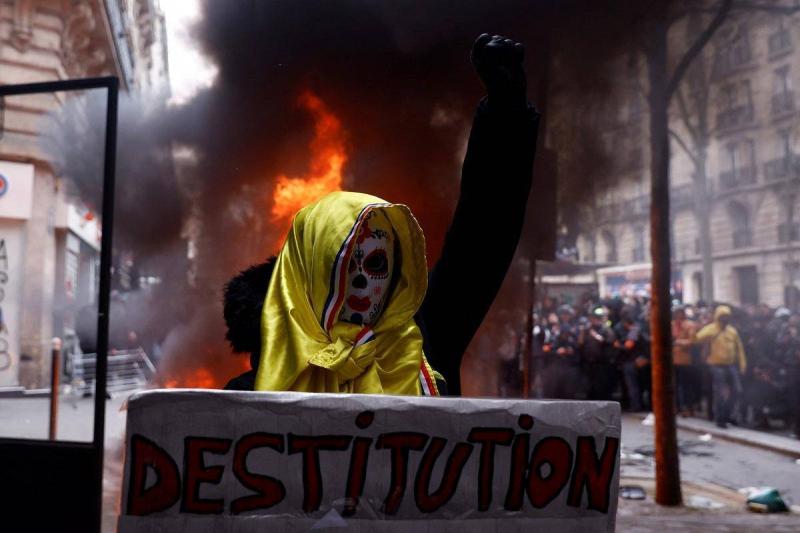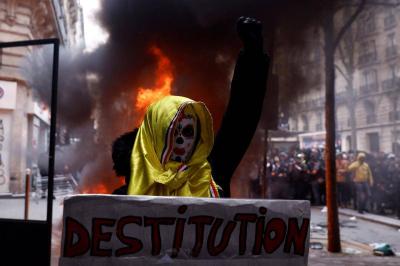Groups dressed in black set fire to trash cans and threw projectiles at police in Paris, who responded by firing tear gas during a march against President Emmanuel Macron and his unpopular pension law. Clashes also erupted in similar marches in cities including Rennes, Bordeaux, and Toulouse, where a branch of a bank and cars were set ablaze in Nantes.
However, the violence today is not comparable to what the country witnessed last week. The gatherings were largely peaceful at a time when public frustration evolved into broader anti-Macron sentiments.
Earlier today, Macron's government rejected a new union demand to reconsider the law, which raises the retirement age by two years to 64, provoking anger among labor leaders who said the government needs to find a way out of this crisis. The government stated it is fully prepared to talk to unions, but only regarding other issues, emphasizing its commitment to the pension law.
Millions of protesters took to the streets joining the wave of strikes that began in mid-January to oppose the law. The intensity of the protests escalated after the government used special constitutional powers to pass the law through parliament without a vote.
Macron, who pledged to reform the pension system during his presidential campaigns, argues that the law is essential to prevent the country from going bankrupt. However, unions and opposition parties believe there are other ways to achieve this goal.
Laurent Berger, president of the French Democratic Confederation of Labor, told reporters at the start of a march in Paris, "We have proposed a way out of the crisis... It is unacceptable to refuse to cooperate with us again."
In the western city of Nantes, the facade of a BNP Paribas bank branch was set on fire. A car was also set ablaze during the march as some fired fireworks at the police. In the west of the country, protesters blocked the Rennes ring road and lit a deserted car on fire. In Paris and Marseille, protesters temporarily disrupted train routes.




